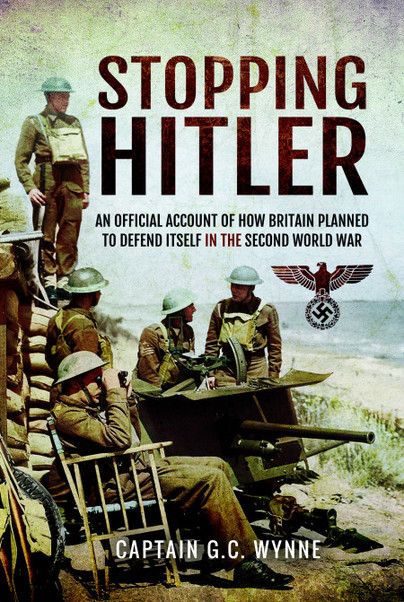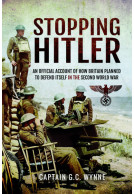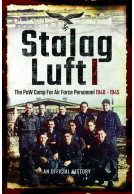Stopping Hitler (Hardback)
An Official Account of How Britain Planned to Defend Itself in the Second World War

Pages: 388
Illustrations: 16 illustrations
ISBN: 9781473895522
Published: 20th March 2017
(click here for international delivery rates)
Order within the next 1 hour, 1 minute to get your order processed the next working day!
Need a currency converter? Check XE.com for live rates
| Other formats available | Price |
|---|---|
| Stopping Hitler Paperback Add to Basket | £18.99 |
| Stopping Hitler eBook (16.7 MB) Add to Basket | £6.99 |
After the unprecedented death and devastation of the First World War, few people imagined that such a conflict could ever happen again. Though the belief that it was the 'war to end war' was to be shattered within a generation, in the immediate aftermath of the First World War, it was expected that international disputes could be settled by arbitration through the creation of League of Nations. Consequently, the British Government concluded that there would not be another war for a least ten years and therefore the country's armed forces could be correspondingly scaled back. The rise of Nazism in Germany in the 1930s, however, prompted politicians and generals to contemplate the frightening prospect of another world war. The Chiefs of Staff of the three Defence Services were instructed to bring Britain's armed forces up to a standard where they could resist a revitalized and powerful aggressor, and to put in place plans for the defence of the country. When that war became a reality, the Chiefs of Staff then had to devise schemes to prevent a German invasion and, as the war progressed, to counter the bombers of the Luftwaffe and the flying bombs and rockets that followed. This Official History of these plans was prepared for the War Office after the war and provides a general account of the plans made for Home Defence during the war period 1939-1945.
As featured in
The Armourer
"I recommend it without reserve".
Loopholes, Journal for the Pillbox Study Group - Number 84
"If you are researching this period the book is essential."
Robert Bartlett
Reviewed by
An official report might be deemed boring, but Stopping Hitler is by no means dull reading -far from it. I recommend it without reserve.
Gil Dowdall-Brown, Fortress Study Group, 2018
Gives us a detailed insiders view of how the British military prepared to cope with the most serious threat of invasion since Napoleonic times.
History of War
Read the full review here
A detailed study of the preparations and actual measure taken to prevent invasion during the Second World War.
Britain at War, October 2017 - reviewed by Robert Mitchell
Captain Wynne of the Historical Section of the Cabinet Office produced this unique account of British threat responses to potential German conflict. The response was in four sections to different threats and used some documents that were later destroyed or filed under security restrictions – Strongly Recommended.
Firetrench
Read the full review here.
About Capt Graeme Chamley Wynne
Captain Graeme Chamley Wynne was born in 1889. He was commissioned into the King’s Own Yorkshire Light Infantry in 1907. Climbing through the ranks, he was serving in the 2nd Battalion at the outbreak of war in 1914. As part of the British Expeditionary Force he was captured by the Germans at Le Cateau on 26 August 1914. Wynne was employed by the Historical Section, Committee of Imperial Defence (later the Historical Section, Cabinet Office) between 1918 and 1956. It was in this role that he completed the report published in this book on 19 May 1948.
Deceiving Hitler's Bombers RAF Decoys and Visual Deception in WWII (Hardback)
The first, and most essential element in aerial bombardment is that of locating the target. All the inherent costs and risks in undertaking a bombing raid are of no avail unless the objective of the mission is correctly identified. If, through means of decoys or visual deception, the attacking aircraft can be tricked into dropping their deadly payloads in areas of little importance to the general war effort, the enemy bombers will have failed in their mission. It was accepted at the start of the war that enemy bombers would always get through the UK’s defences and that the German bomber crews…
By An Official HistoryClick here to buy both titles for £45.00

















